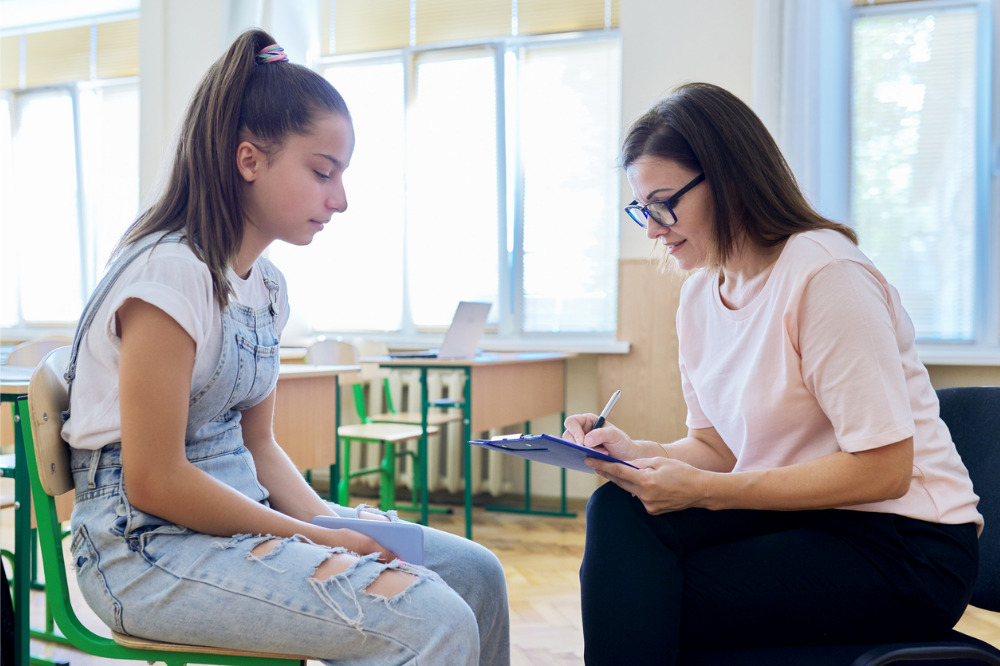
Studies show one in three Australian women (34.2%) have experienced physical and/or sexual violence perpetrated by a man since the age of 15. However, when it comes to the quality of consent education in our schools, experts say more needs to be done.
To help address this, former Sydney student, Chanel Contos, launched a petition called ‘Teach Us Consent’, which received thousands of testimonies and tens of thousands of signatures from survivors of sexual abuse across Australia.
In February, the Federal Government heeded the growing chorus of calls to tackle the problem at its core, announcing that holistic and age-appropriate consent education will be taught in every Australian school from 2023.
Letting children know their voice matters
Education ministers will meet in April to finalise the new curriculum, which will be taught to students from Kindergarten to Year 10 and include a number of topics that have been lacking in sex and consent education, such as information about power imbalances, gendered stereotypes and coercion.
For its part, Labor has pledged $77m in funding to train teachers how to discuss respectful relationships with their students in an age-appropriate way.
Labor's education spokeswoman, Tanya Plibersek, said too many schools have been lacking proper consent education.
"There's nowhere near enough support to train teachers properly in this kind of education, and some schools don't have access to programs developed by experts," Plibersek said.
"Too many school students are missing out on education that can help keep them safe. It's also about teaching kids how to seek help if they feel unsafe.”
Sex education is more than ‘no means no’
An article published in Saprea outlines some key areas of consent education that educators, parents and carers can use when discussing this important topic with young people. The Educator shares some of them below:
Permission is important: Asking for and granting permission is important, especially when it comes to something like physical affection. This is the type of lesson that can be taught on a smaller scale (like being allowed to give permission to let someone borrow their toy) and expanded on as they grow older.
They can change their mind: There are times when your child will say “yes,” but want to change it to a “no” due to the experience, emotions, fear, etc. they are having. Allow them to change their mind. Teach them to respect it if someone else changes their mind as well. Consent is not a blanket “yes” forever and your child should understand that.
Allow them to say no to hugs: One of the things we like to say is “don’t force the hug” when teaching children about sexual health. Allowing them to give and receive physical affection on their own terms makes it possible for them to realize that they have a voice. Allow them to say no to a hug or kiss and teach the other adults in their life to respect your child’s decisions as well.
‘Consent is just one part of a bigger picture’
Giselle Natassia Woodley, a researcher and Phd Candidate at Edith Cowan University, recently shared her insights along with three of her colleagues at the University – research officer Carmen Jacques, researcher and lecturer Kelly Jaunzems and professor of communications, Lelia Green – in an article published in The Conversation.
According to Woodley, Jacques, Jaunzems and Green, conversations around consent education should include how to maintain and respect boundaries, managing rejection, and balancing giving consent with aspects of pleasure and desire.
“Too great a focus on consent, using a fear-based sex-negative approach [think of phrases like, “Are you sure?” “Are you absolutely certain?”] fails to acknowledge and respect the positive and pleasurable aspects of intimate human relationships,” they wrote.
“Clunky approaches to these topics can mean romance, consensual seduction, courtship and trust may suffer, and teenagers will tune out.”
They say that while the announcement of mandatory consent education in Australia is a huge win, the most important work is only just beginning.
“This significant step is just one of the many needed to educate thoughtful, compassionate, caring humans while improving general well-being and reducing widespread discrimination – as well as the risk and incidence of sexual assault.”


